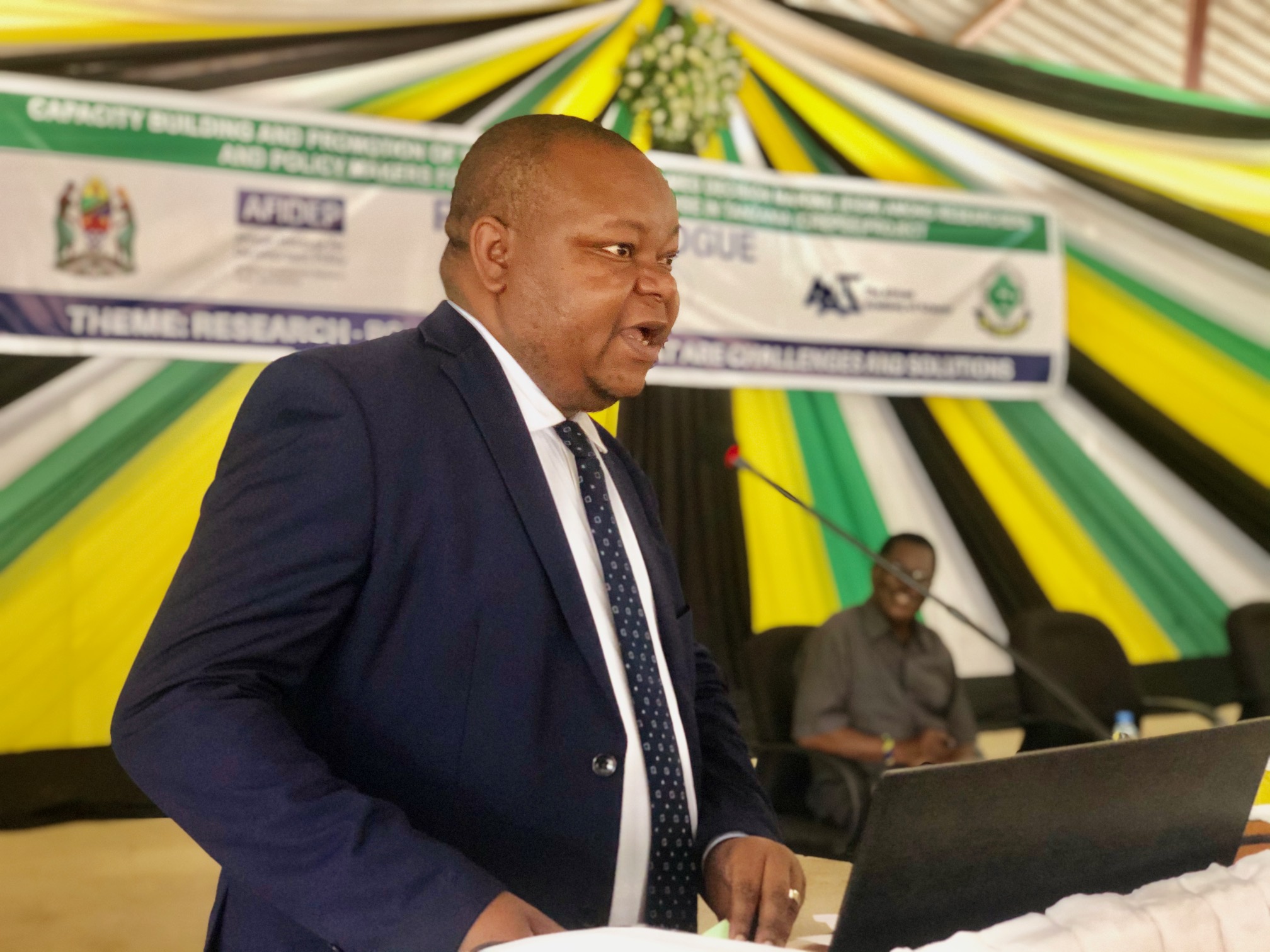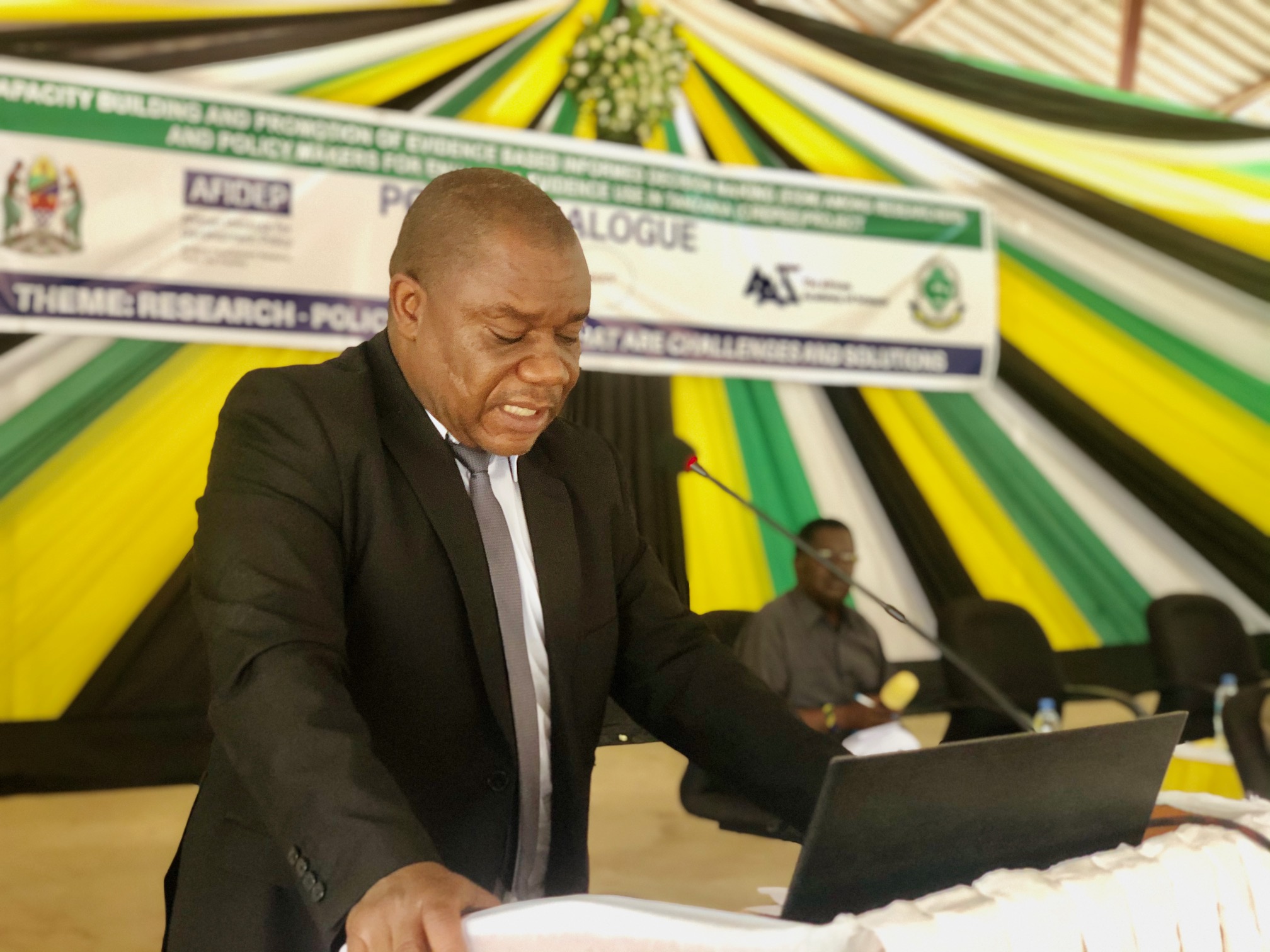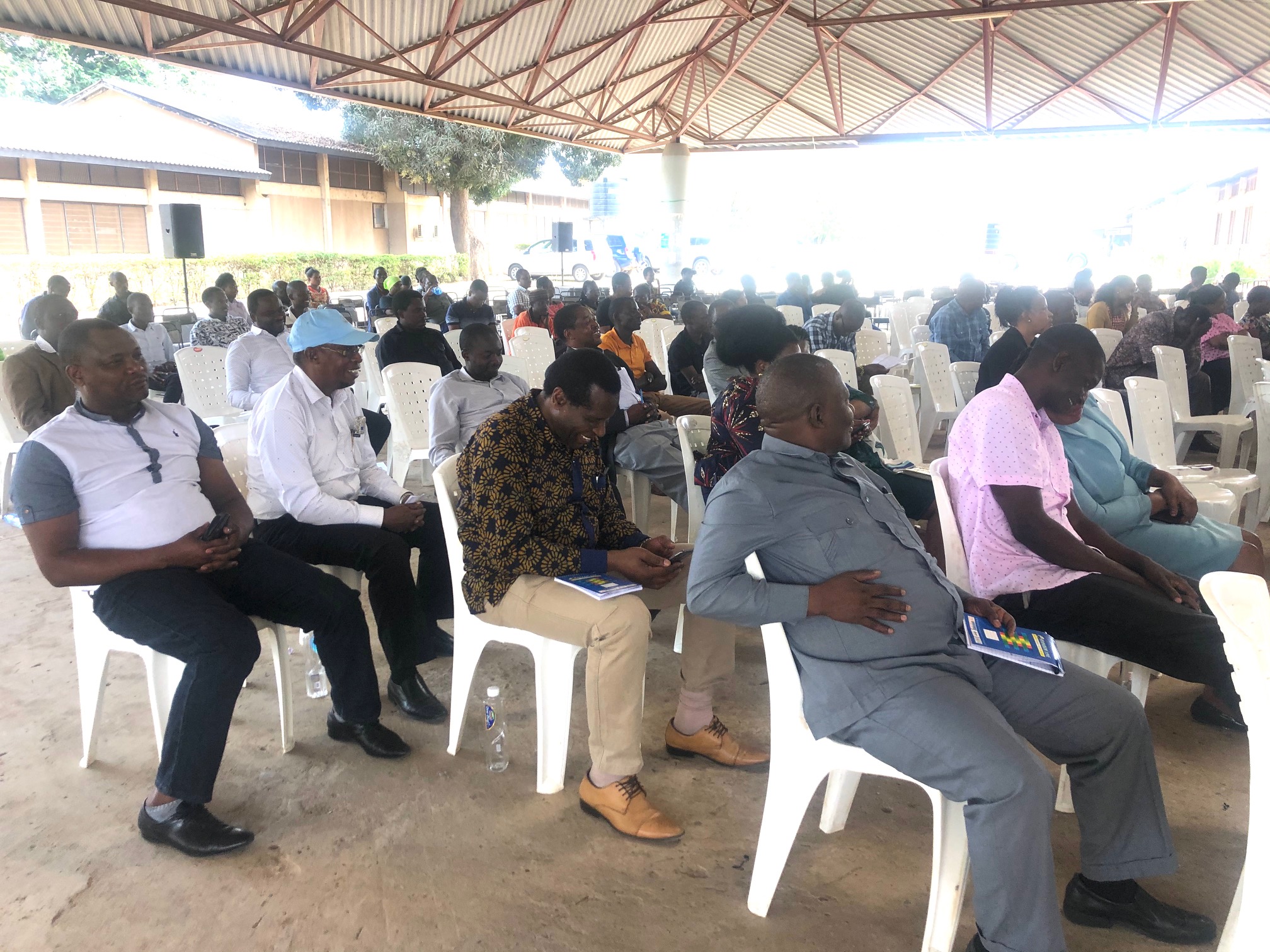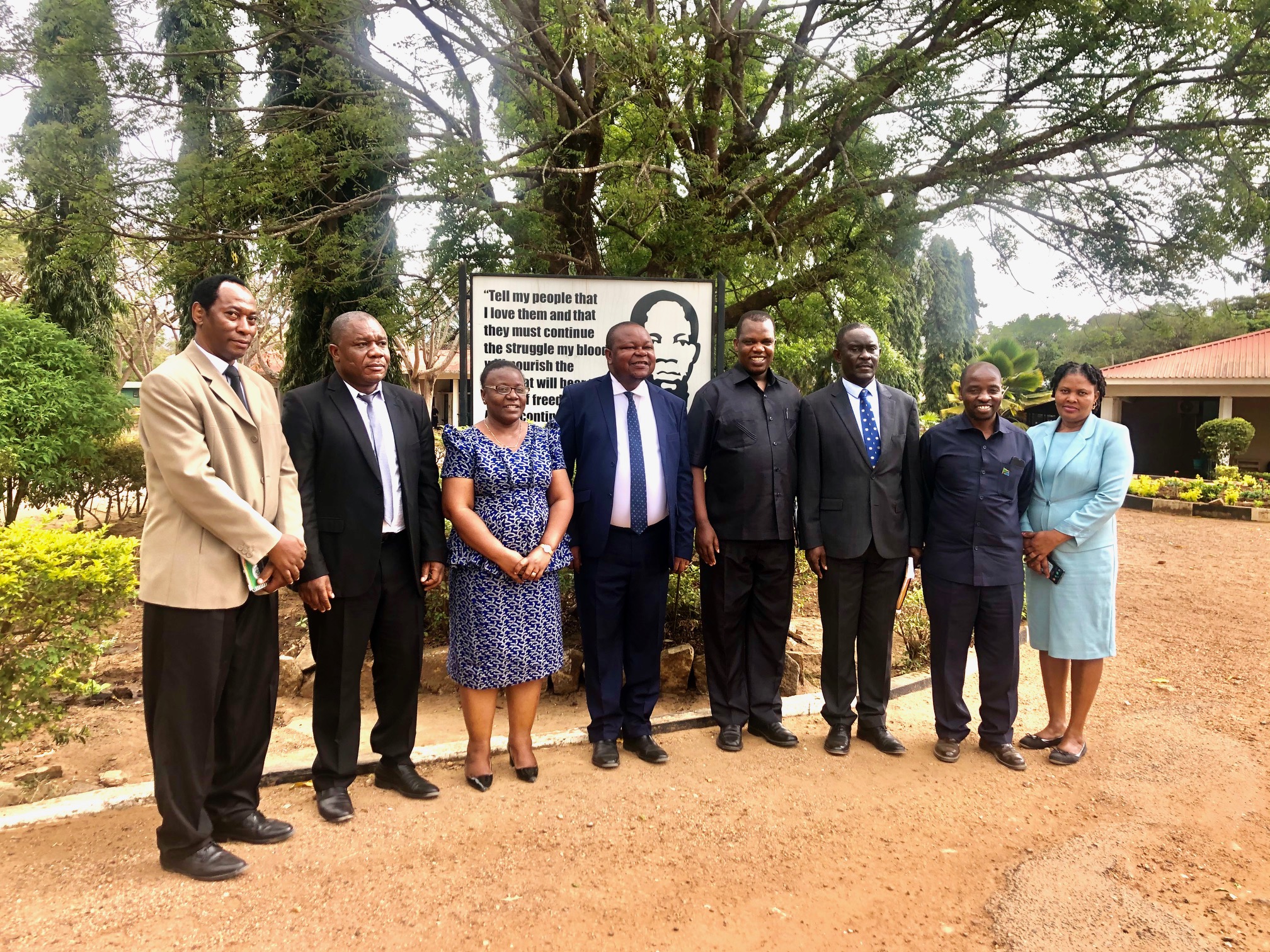The government relies on the results of research studies in making decisions and overseeing the development of the country, although the contribution of those studies in formulating policies and development plans in the country is still not satisfactory.

CREPEE project leader, Dr. Faith Mabiki talking about the objectives of the project and the debate
This was stated by the secretary general of the Ministry of Industry and Trade, Professor Riziki Shemdoe while opening a debate on the analysis of research findings in the formulation of policy and development plans held on September 5, 2020 at Sokoine University of Agriculture’s Nelson Mandela Freedom Square in Mazimbu Morogoro.

Permanent Secretary in the Ministry of Industry and Trade, Professor Riziki Shemdoe giving the opening speech at the Nelson Mandela Freedom Square, Mazimbu Morogoro
Prof. Shemdoe said most of the research findings and professional reports end up in Journals and Library as well as office cabinets while economic growth is highly dependent on the results of such research and innovations.
"Our government is committed to empowering various institutions and individual researchers to conduct research, design, and improve technology in all economic sectors including the industrial sector which is currently growing rapidly" noted Prof. Mdoe
The Secretary-General called on all researchers in the country to continue conducting research that will generate innovation in the development of various sectors and thus their contribution through research findings will contribute to the country's development plans.
Prof. Mdoe congratulated Sokoine University of Agriculture for the great idea of having the debate which is for the development of the country and thanked AIDEP and SUA for funding the debate
Earlier speaking before welcoming the official guest, the Deputy Vice Chancellor (Academic) Prof. Maulid Mwatawala on behalf of the Vice Chancellor Prof. Raphael Chibunda said development policies and plans have been lacking balance in Socio-Economic Development and Sustainable Development.
Prof. Mwatawala explained that this is due to the fact that sometimes the research and the results of their studies are not used properly to reflect the real needs of the community and the nation as a whole but also the policy makers and development plans do not easily understand the results of such studies and use them in the formulation of development policies.

Sokoine University of Agriculture’s Deputy Vice Chancellor (Academic) Prof. Maulid Mwatawala speaking on behalf of the Vice Chancellor Prof. Raphael Chibunda during the opening of the Debate
He went on to say that it is clear that universities around the world are a source of Academic and Research and in that context Sokoine University of Agriculture has seen fit to use its internal capacity and in collaboration with other stakeholders to establish a Center for Research Synthesis.
The Center's objectives, he said, are to compile research evidence on policy formulation and development plans, review scientific publications and establish a database of various research findings, compile summaries of research results in simple language and prepare policy summaries.
“SUA has made a significant contribution through its scientific research in the country and the world. For example, in the results released by the Webomatrics ranking web of universities in July 2020, SUA was ranked first in the country in the use of its research publications (citation index) where more than 82,220 researchers around the world have used SUA publications in their writings” said Prof. Mwatawala
Prof. Mwatawala said despite these achievements as a Nation we still have challenges that need to be addressed to stimulate the use of research, science, technology and innovation as a tool for economic development.
He said that in order to address these challenges, researches must reach the database of the National Statistics Office, be used in the formulation of National Policies and Development Plans, reach decision makers in simple and understandable language and also have special places to process and translate them. and come up with specific arguments in the relevant areas for development plans.
For his part, the leader of the project aimed at building and enhancing the capacity of researchers and policy makers to integrate the results of research to contribute to the development of the country known as CREPEE, Dr. Faith Mabiki said Africa is a continent that is still lagging behind in delivering research results despite having a large population.

Participants from from various regions in the country. representing Universities, Research Institutions, Governmental and Non-Governmental Organizations
She cited the 2015 United Nations Educational, Scientific and Cultural Organization's (UNESCO) report showing that Africa produces only 2.6% of the world's research results but also Africa contributes 2.9% of all researchers in the world.
Dr. Mabiki said the figures show that the contribution of research to the development of Africa and Tanzania is small and therefore the CREPEE project was born to contribute to the government's efforts to increase the capacity of researchers to integrate research results so that they can be used in various policy decisions for development. of the country.
Dr Mabiki said that in order to achieve this goal, the project runs capacity building workshops in order to raise awareness on how research can be used to make appropriate policy decisions as well as development plans.

Joint photo including Secretary General Prof. Shemdoe with SUA management and CREPEE Project leaders immediately after the opening of the debate




